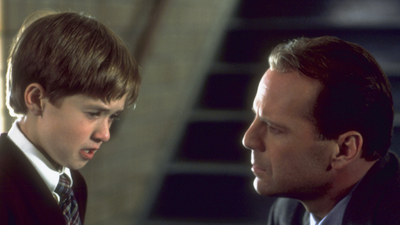I thought, “Oh, I’ll skip reading that piece and save it until I see the movie this weekend.” My wife had already seen it and loved it. We had a young daughter and would take turns going to movies by ourselves while the other stayed home.
But as I turned the page, purely by happenstance, my eye fell on the exact sentence of the exact paragraph that revealed the “twist ending.” I wasn’t angry about it, though I was a bit irritated. I told my wife what happened, and she said, “You should see it anyway; it’s a good movie.” So I went to see “The Sixth Sense” anyway and loved it so much that I went to see it a second time a week later.
I went into the movie knowing that Malcolm did not survive his shooting at the hands of a disturbed patient in the opening scene and was in fact dead throughout most of the story. This is revealed to anyone who hadn’t already figured it out in the scene where Malcolm’s wife Anna (Olivia Williams), who we thought was merely estranged from him and (at times) giving him the silent treatment, was mourning the loss of her husband. It was a treat of a different kind to hear the audience react as Anna drops the wedding ring and Malcolm tries and fails to pick it up while putting the truth together in flashback. It was as if I was seeing the film for the second time the first time.
But here’s the thing: I didn’t feel that I’d been robbed of anything because it was a substantial film with a lot more on its mind than pulling the rug out from under audiences, and many other qualities that made it worth seeing and seeing again. The performances of all the main actors were exquisite —especially Willis, Williams, and Osment. The latter gives one of the best performances by a child actor in the history of movies. Steven Spielberg cast him as the little robot boy David in “A.I.: Artificial Intelligence” on the strength of his work for Shyamalan. There was more happening in the script than a delayed revelation: “The Sixth Sense” is a great movie about the psychological architecture of denial, the concept of justice, and the sad reality that many wronged people can’t get any when they’re alive.

